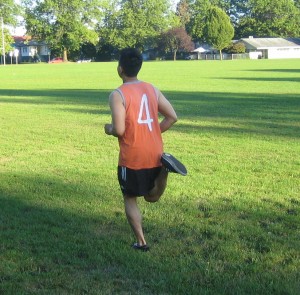Plantar fasciitis usually occurs once the plantar fascia which is a band of tissue connecting the toes to the heel bone becomes swollen or sustained small tears. There are some individuals who experience stabbing pain in one or both heels as soon as they wake up in the morning, but the intensity of the pain diminishes throughout the day. Those who engage in running, overweight and pregnant women face a higher risk for developing plantar fasciitis. If the pain experienced by the individual is severe or prolonged, it is best to schedule an appointment with a doctor so that appropriate measures can be started. If you want to learn more about pain management measures, click here.
Steps in relieving pain of plantar fasciitis

- The individual must be instructed to keep his/her feet off the ground for several days. For those who have jobs that involves using the feet, request for a chair to use during the shift or take a few days off if possible.
- Apply an ice pack covered in a clean towel or cloth on the affected area for 15-20 minutes several times in a day or after physical activity. This will help relieve the inflammation and pain experienced by the individual. You can even freeze a paper cup filled with water and roll it on the affected area for 5-7 minutes.
- The individual should wear shoes as much as possible even inside the house to protect the damaged areas of the feet. The shoes must be placed by the bed at night in case the individual needs to get up. Sandals must be avoided unless they provide adequate arch support.
- The individual should engage in low-impact exercises such as bicycling or swimming instead of jogging or walking. It is best for the individual to modify his/her workouts depending on the severity of the condition.
- Use arch supports or orthotics that are readily available in grocery stores and pharmacies. These work by absorbing the shock and relieve the tension from the plantar fascia. When orthotics are used, always make sure that they are used in all shoes used by the individual.
- The arches and calves must be stretched especially before jogging or taking long walks. This can help strengthen the plantar fascia and minimize the risk of relapse.
- The doctor can recommend a plastic night splint that reduces the contraction of the plantar fascia and Achilles while the individual sleeps. The splint can also stretch the foot and minimize the morning stiffness.
Important considerations to bear in mind
If the individual walks barefoot or only wears slippers, it can increase the pain since the feet need arch support when the plantar fasciitis is present.
For those who are overweight, he/she must lose the extra pounds and maintain a healthy weight to take the pressure off the feet. When choosing shoes to wear, the individual should look for low-heeled shoes that properly fit and well-cushioned as well as providing good support.
